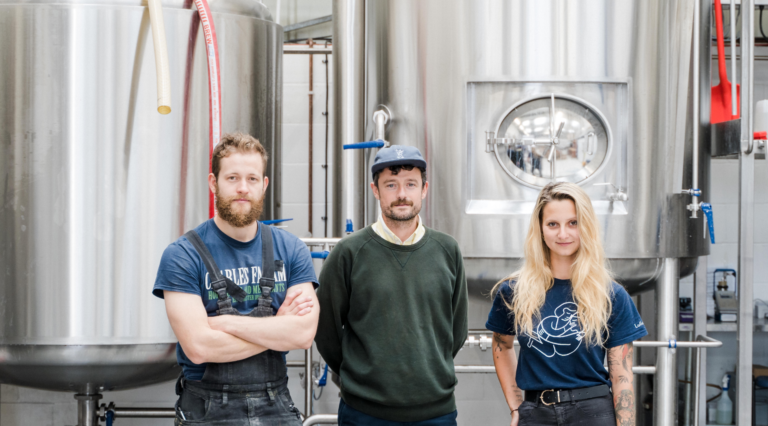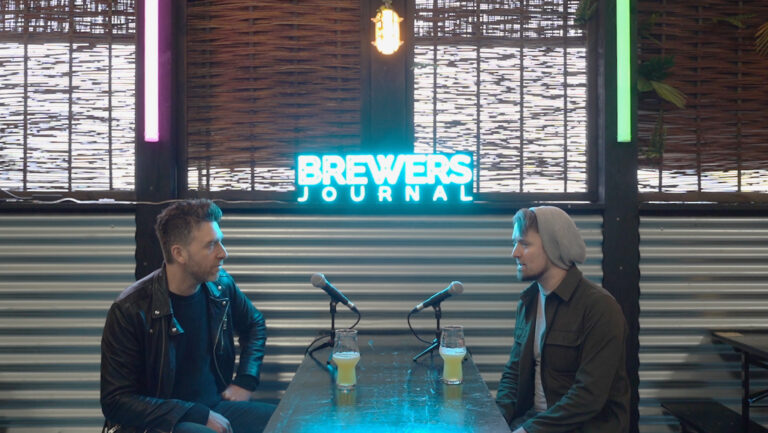There are several breweries offering contract services but not all provide customer service to the levels you need or expect. It’s hard to put a price on customer service but “excellent” is worth searching for, explain Renegade Brewery.
There are many reasons why businesses selling beer seek out third parties to either brew and pack or simply pack their own beers for them.
Over the last 10 years it has become increasingly common for entrepreneurs with a passion for beer but no brewery of their own to work with established breweries to develop and produce their products for them.
This approach is very sensible if you don’t have a good technical brewing background or lack the investment to establish your own brewery.
It also facilitates a faster start into production and is considerably less risky financially.
Several successful brands have started in this way in recent years and, despite the tough economic situation we currently face, many continue to do extremely well.
For brewery owners there are different reasons for considering using a third-party brewery to brew and/or pack.
Whether it’s a short-term volume increase that cannot be met or a temporary, planned brewery closure, third-party breweries can play a vital role in keeping customers supplied with beer.
Another common reason is the proposed launch of a new beer style that cannot, for technical or logistical reasons, be produced in their own brewery.
Possibly the most common reason for established breweries to use third parties relates to packaging.
If a brewery has a customer requiring a packaging format it does not have the equipment to produce a co-packer can be an excellent solution to delivering the contract.
Whether the new format is cask, keg, bottle, can, minikeg, keykeg or something else if the brewery cannot pack it then finding a capable partner is a godsend.
Transportation of beer via Arlington’s or tankers can be done without any significant deterioration in quality. Clearly, the primary packaging format is key but so too is the secondary packaging. It may be that a brewery has a bottling or canning line but the small pack has to be subsequently packed into flow wrap, tray and shrink or Fully Enclosed Cardboard (FECs – sometimes called “fridge packs”) which cannot be done.
The latter format, FEC, is becoming increasingly popular not only because they look great on a retail shelf but they also guarantee multiple bottle/can sales versus individual bottles/cans, and have the added advantage that they are fully recyclable.
Brewing and Packaging
When deciding which third-party brewer to use to brew and pack there are some important considerations.
Firstly, if you don’t have a recipe you’ll need assistance either from a brewing consultant or the contract brewery itself. Either way you’re probably going to want to do some pilot brewing before going to full production scale.
It’s usually best to work with a brewery that has a pilot plant which mimics, as closely as possible, their full-scale kit and have brewers who have experience in taking pilot brews to full scale successfully.
Having a pilot brew you love which isn’t a good match at full scale can be frustrating and expensive if you decide not to pack it, and whilst there are no guarantees with scale-up having an experienced team will get you there quicker.
If you have a recipe and simply want a third-party to produce the same beer on their kit that’s clearly easier but brewing on different kit and potentially different scales can introduce differences in the final product, the key question here is are those differences significant or not? Will your customers be able to tell the difference?
Again, choosing a brewery and brewing team with experience in doing this can save a lot of pain in the long run.
In terms of packing the considerations are the same whether the brewery is producing the beer or you are transporting your own for pack-only.
Pack-Only
When selecting a partner to pack your own beers clearly the third-party will need the equipment to pack into the primary and secondary packaging formats you require, that’s a given.
However, there are a number of questions to ask such as can beer be split into different packaging formats, e.g. can and keg, in the same run, what kinds of loses are typical, what levels of carbonation can be achieved and what are the specification targets for parameters such as dissolved oxygen, clarity and microbiology?
Stabilisation of the beer prior to packing is also an important consideration whether it is achieved via pasteurisation or sterile filtration. With the high energy costs, impact on the environmental footprint of the brewery and potential for off-flavour development, pasteurisation is increasingly being replaced by sterile filtration in breweries.
Once produced most breweries will provide some basic analyses from their own internal laboratory which may or may not be included in the pricing.
Post-packing storage conditions need to be considered if the brewery are holding stock for any extended period.
Ideally they should have a temperature controlled warehouse held at around 12-14 deg C throughout the year to maximise the freshness of the beer.
With summer temperatures occasionally hitting over 30 deg C in the UK, a trend that is likely to increase in the future, nobody wants to be drinking cooked beer.
However you decide to work with a third-party to brew and/or pack your beers make sure you have a contract in place which is fair and works for both sides.
Pricing is important but so are the terms and conditions in which the two organisations agree to work together.
The contract covers the codified aspects of the relationship, and most third parties will have a standard contract to use, but you also need to find a partner who you feel comfortable working with and trust.
You need to feel confident that they will care about your products as much as you do, that communication is likely to be good and the team are responsive to your questions and needs.
There are several breweries offering contract services but not all provide customer service to the levels you need or expect. It’s hard to put a price on customer service but “excellent” is worth searching for. Happy hunting!









